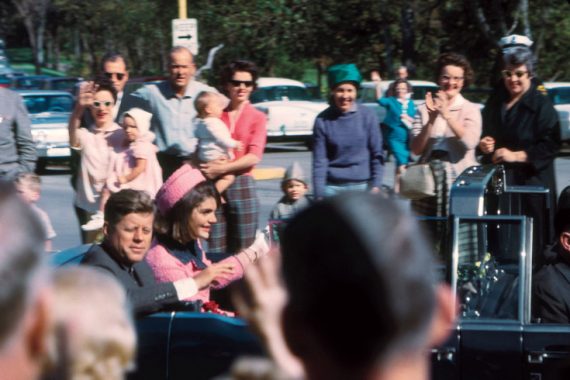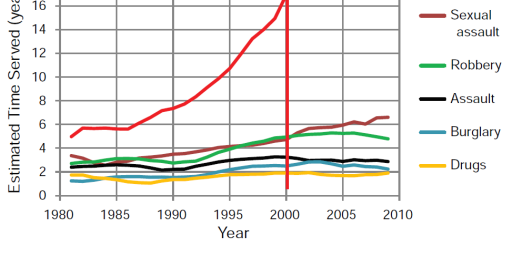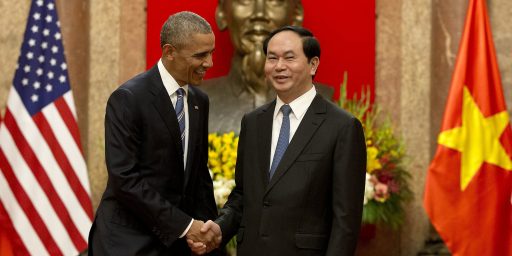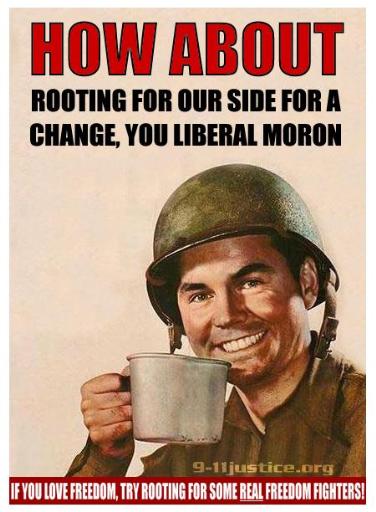John F. Kennedy A Conservative? No, Not Really
Conservatives have their own Kennedy myth to compete with the myth of Camelot.
The 50th anniversary of President Kennedy’s assassination has not surprisingly revived a great deal of discussion about Kennedy’s Presidency, his assassination, and, inevitably, where he fits into the American political milieu. These remembrances include a theme that many on the right have repeated for at least the past thirty years ever since President Reagan sought to link his Presidency to Kennedy’s in both the foreign policy and domestic policy arena that asserts that, although he was a member of the Democratic Party, John F. Kennedy was, and would today be considered, a conservative or perhaps at least a “moderate Republican.” The latest example of this is Ira Stoll’s new book JFK: Conservative, the central theme of which the author partly summarized in a piece at Time Magazine late last month:
Far from being a big-spending liberal, Kennedy was a conservative by the standards of both his time and today. While he increased military spending, overall he restrained federal outlays. His plan for economic growth emphasized not deficits but tax-rate cuts that he argued would eventually pay for themselves by increasing government revenue. He reduced tariffs in pursuit of free trade, and he took a hard line against communism abroad and at home.
In more candid and private moments, Kennedy’s closest aides have acknowledged as much. At one closed-door Boston gathering of Camelot veterans, Theodore Sorensen said, “Kennedy was a fiscal conservative. Most of us and the press and historians have, for one reason or another, treated Kennedy as being much more liberal than he so regarded himself at the time … in fiscal matters, he was extremely conservative, very cautious about the size of the budget.”
(…)
It’s not only Kennedy’s speeches that define him as a conservative, but also his actions in office. Kennedy had run in 1960 to the right of Richard Nixon on Cuba; as Nixon recalled it in his memoir, after their first televised presidential debate, “Kennedy conveyed the image — to 60 million people — that he was tougher on Castro and communism than I was.” In the Cuban missile crisis, Kennedy ordered a blockade, disregarding the advice of more dovish advisers such as McGeorge Bundy, Adlai Stevenson and Robert Lovett.
Matthew Steinglass pushed back on the central thesis of Stoll’s argument, the Kennedy tax cuts, as proof of Kennedy’s conservatism:
Mr Stoll’s second point is that Kennedy cut taxes on the rich. This is true. Kennedy cut the top marginal tax rate from 91% to 70%. He did so in order to run a larger budget deficit, because his economic advisers, including Arthur Okun and Walter Heller, believed this would provide a Keynesian stimulus to demand. Neither Kennedy nor his advisers believed in the subsequent supply-side theory that gained credence in the 1970s, which held that low marginal rates on the very rich were crucial to stimulate investment. One of his advisers, James Tobin, explicitly said the income-tax cut would provide a short-run economic stimulus but would do nothing to promote investment “except in the general sense that prosperity is good for investment.”
The tax cut argument has always, of course, been a rather simplistic one that ignores both the historical realities of the early 1960s and the fiscal situation of the early 21st Century. Most prominently, as Daniel Larison points out, there’s the fact that when Kennedy came into office in 1961 the top marginal tax rates were far, far higher than they are even today after the tax increase for high income earners that was part of the deal to permanently extend the Bush Tax Cuts for the vast majority of Americans. Comparing those tax rates to the rates that were in effect in 1961 is quite literally comparing apples and oranges and really boils down to an attempt to make a false comparison between Kennedy’s position back then with the position of Democrats (and some Republicans) today. There’s a huge difference between seeking to lower tax rates on “the rich” when those marginal rates are in excess of 70% and trying to raise them by only a few percentage points in an effort to address a looming fiscal crisis when the top marginal rate is only 35%. Yes, JFK supported cutting taxes back in the early 1960s, but then so did many members of his own party, as the fact that he was able to get his tax cut package through a Congress overwhelmingly controlled in both Houses by the Democratic Party. That doesn’t mean, however, that, were he alive today, he’d be signing on to Grover Norquist’s tax pledge and supporting calls to shut down the government rather than agreeing to any tax increase at all. Making that argument involves nothing less than drawing the kind of false historical analogies that only a blind partisan would make.
Similarly, as Steinglass notes, Kennedy’s foreign policy was no different than most members of his own party at the time. In those years before the Vietnam War, when the Cold War was still very, very hot, in fact, the anti-Communist containment policies that Kennedy pursued were pretty much universally shared across the leading members of both political parties. Moreover, during the 1960 campaign, part of then Senator Kennedy’s argument against Vice-President Nixon’s campaign was the allegation that existed at the time that the United States was falling behind in the race to create a sufficient stockpile of missiles capable of striking the Soviet Union in the event of nuclear war, thus endangering our nuclear deterrent. In other words, Kennedy ran to Nixon’s right on foreign policy to some extent, although it turned out at the time that existing intelligence, which Kennedy didn’t have access to at the time, showed that the so-called missile gap was largely non-existent. This is also the same John F. Kennedy who went ahead with the Bay of Pigs invasion, stood up to the Soviets over the Berlin Wall, successfully stared Khrushchev down over the Cuban Missile Crisis, and expanded the U.S. involvement in South Vietnam that had started under the Eisenhower Presidency. While one might be tempted to call this a conservative foreign policy, the truth is that it was really just a continuation of the then-existing bipartisan consensus and that a President Nixon elected in 1960 most likely would not have acted any differently than President Kennedy did during his two and 3/4 years in office. Kennedy’s foreign policy was, then, neither liberal nor conservative as we understand those terms today.
Cato Institute Vice-President Gene Healy further attacks Stoll’s central thesis in a review of his book at The American Conservative , but he takes the critique in a different direction:
Stoll lays it on pretty thick: in his telling, JFK was a great president, a good man, and—no kidding—a good Catholic. Moreover, Kennedy’s policies—his “tax cuts, his domestic spending restraint, his pro-growth economic policy, his emphasis on free trade and a strong dollar, and his foreign policy driven by the idea that America had a God-given mission to defend freedom”—show that he was, “by the standards of both his time and our own, a conservative.”
It’s a cramped, reductionist account of conservatism, one that collapses the entire political tradition into its neoconservative variant. But an even less charitable person than I could make the case that it’s a fair approximation of “actually existing conservatism,” and Stoll’s thesis has already received a fairbitofpraisefrom commentators on the Right.
God help us. If our 35th president—fiscally profligate, contemptuous of civil liberties, and criminally reckless abroad—is a paragon of modern conservatism, conservatism is in even worse shape than I thought.
Healy then goes on to review Kennedy’s record on both domestic/fiscal policy and foreign policy and, rather than taking the expected path of arguing that Kennedy’s policies were not really as close to what is presently considered conservatism, he argues that there really isn’t anything in Kennedy’s record that conservatives should want to aspire to. At the same time, though, he does acknowledge that there are plenty of similarities between Kennedy’s foreign policy and what today would be called neoconservatism:
It’s a strange view that favors confrontation and foreign-policy “toughness” as ends in themselves, even at the risk of nuclear annihilation. But then Stoll has a lot of strange views on foreign policy. On Vietnam, where JFK had deployed some 16,000 troops by 1963, Stoll writes, “President Kennedy and the national security team he brought into office have been faulted for leading the country into the Vietnam War without clear objectives … a formal declaration of war [or] an exit strategy”; however, “that criticism should be discounted for [sic] the fact that South Vietnam fell to Communist North Vietnam only in April of 1975.” (If you never end the war, you never have to ask a man to be the last man to die for a mistake.)
Of course, Healy’s critiques about Kennedy’s record are precisely the kinds of things that a conservative of Stoll’s variety admires, so it’s not entirely surprising that he’d try to claim the Camelot legacy for the right. I have to agree with Healy, though, that while Kennedy’s actions may have been consistent with the views of the time they are hardly something that modern conservatism should seek to claim as its own unless it wants to return to the big government conservatism of the Bush years.
The weeks leading up to today’s anniversary have seen other versions of the arguments that Stoll makes advances by others. Some have asserted, for example, that a modern JFK would be more at home in the Republican Party than the Democratic Party. Leaving aside the myriad differences between the Kennedy of 1961-1963 and the modern GOP as noted above, especially on domestic policy, this argument is absurd for other reasons. First of all, the Kennedy family was, is, and likely always will be loyally Democratic. The family alliance with the party started with Joe Kennedy Sr. and the fact that Irish Catholics in Boston allied themselves with Democrats from the time they arrived in the United States and it has continued to this day. The idea that Kennedy would have somehow split with his own party at some point after he left office is just absurd. Secondly, an argument like this ignores the likely possibility that, much like his brothers, Kennedy’s own political views likely would have evolved over the years, especially when it came to issues like Civil Rights and poverty. It may be true, for example, that Kennedy might not have pursued something as grand as LBJ’s “Great Society” had he survived and been re-elected in 1964, it’s also unlikely that he would have been unmoved in his second term by the growing societal awareness of both issues that most likely still would have developed over the years of his second term from 1965 to 1969.
In the end, if you want to classify John F. Kennedy in terms of any form of contemporary politics, then perhaps the best place to put him would be among those such as Bill Clinton and others who formed the Democratic Leadership Council in the 1980s and ended up ending their party’s time in the political wilderness that had started after the 1968 election. Indeed, it’s quite possible that a second Kennedy term would have averted a great deal of the conflict that split the Democratic Party after his death (and the Vietnam War, of course) and led to the embarrassing spectacle of the 1968 Chicago Convention and the 1972 nomination of George McGovern. Placing Kennedy in that wing of the Democratic Party, though, doesn’t make him a “conservative,” and it certainly doesn’t support any argument that he’d be more at home in the Republican Party. Indeed, if Kennedy were alive today, and if he were he’d be 96 years old, he’d certainly be as strong a supporter of President Obama as his brother was and his daughter is.
I don’t necessarily blame Republicans for trying to claim a piece of the Kennedy legacy for themselves. Thanks to his tragic death and the legend that was created around his Presidency, he has entered the list of those Presidents that in some sense belong to the entire nation. Both parties, for example, try to claim Presidents like Washington, Jefferson, and Lincoln’s legacies. President Reagan often spoke admiringly of Franklin Roosevelt, and Democrats often try to point out how far to the right the GOP has drifted by claiming the legacies of Republicans like Theodore Roosevelt, Ronald Reagan and George H.W. Bush, or at least comparing (negatively of course) the modern GOP to the way these men governed while in office. If you’re going to do that, though, you need to be at least somewhat intellectually honest about it, and people like Stoll most certainly are not being intellectually honest.
H/T: Daniel Larison







So this means Republicans want a 70% top tax rate?
Pssst, Reagan was a liberal and Nixon was a flaming liberal. Not only that, but up is down and blue is apples. Now buy my book!
Yeah, sure, Kennedy was a conservative.
Meanwhile, conservatives will spend 99% of their time discussing Kennedy by accusing him of screwing up the Bay of Pigs invasion, screwing over South Vietnam, backing down during the Cuban Missile Crisis, being weak on Communism all around, and don’t even get them started on his personal life.
Hey, kinda like the same way the GOP claims to be the Party of Lincoln while loathing everything Lincoln did.
Young JFK was, sadly, an American Firster in 39. It’s OK if you guys want to have him for his pre-prezzy era.
Thankfully, this is the last big anniversary for Kennedy. By the time 60 rolls around, no one under 70 will care. Just as few under 60 care now. I was alive when Kennedy was shot. I don’t remember where I was, don’t remember anything. I’m fairly certain, I took a nap.
In a related item, George Will just penned a column opining that JFK was consistently conservative. By today’s standards, on the political spectrum, JFK was a middle of the road Cold War Democrat, just as Richard Nixon was a middle-of-the-road Cold War Republican.
However ….. You can’t extricate politicians from their time, remove them from the context of their times and re-label them to fit our contemporaneous view of what a liberal and conservative are. It does not work.
In the same vein, does anyone really think that Ronald Reagan wouldn’t be a Republican today? Of course he would, and he had the stature and ability to adapt and succeed in today’s GOP, take it in a slightly different direction perhaps, but a Republican he would be. Same with JFK – he captured a moment, and took the party with him, he would be a Democrat today, and he would adapt to our political culture as it is now.
@JKB:
Yes, the occasional assassination of important American political figures is so boring.
@al-Ameda: To be fair, my parents had a classmate in school whose response to learning that Kennedy was assassinated was the following: “Good.”
Maybe JKB and this classmate of my parents are friends.
@Timothy Watson:
People in my mother’s Birmingham, AL highschool classroom cheered when they heard about JFK’s assassination.
@Timothy Watson:
Some things are a check on one’s humanity.
I’m very liberal, yet I remember when I got the news of the assassination attempt on Ronald Reagan – it was very unnerving and depressing to me, it shocked me. I remember that feeling of “oh no, not again” it chilled me. I did not consider the enormity of that event through a partisan prism.
The immediate reaction after the assassination was that the Russians were responsible and this country was under some kind of an attack. That was most people I remember felt.
Kennedy was a sensible, cool moderate and pragmatist. He was very intelligent and had a sense of history. This country was never the same after the assassination.
@al-Ameda:
You’ll notice Will failed to mention 70% tax rates.
A few years later they would be making “black widow” jokes about Coretta Scott King. Classy bunch.
@C. Clavin:
I was in Kindergarten.
They sent us home.
@al-Ameda:
It is, absolutely, when you are three and a half years old.
Now, ask me about Viet Nam and the horror of being eight years old and watching napalm victims on the evening news in 1968…
THIS, I can tell you about.
American exceptionalism.
@JKB: The high water mark of your level of engagement with political reality, no doubt.
I was six weeks old on the day JFK was shot. I was either napping, feeding, or eliminating. It’s not that I didn’t care, developmentally I could not care.
Over 75% of the American people believe that Oswald did not act alone. Most people don’t buy the single bullet theory. Why was the motorcade route changed? By whom? Many witnesses heard several gunshots. There were several unusual actions in the hospital in Dallas that did not follow usual procedures and protocols. The original autopsy report no longer exists. Why was a second autopsy done in Washington in secrecy? The events at the Dallas police station are beyond belief. Oswald was continuously led up and down jammed hallways (anyone could get in there) and in and out of rooms, stopping several times to make statements. Why was he not allowed to call a lawyer? This is simply incredulous. His statements without a doubt imply a set up. I remember many people saying that Oswald’s days were numbered and he would never be tried. Dr. Larry Sabato of the University of Virginia believes the CIA has thousands of secret files relating to the assassination and Oswald. It is doubtful that these will ever be released.
A new, independent investigation could solve many unanswered questions.
I am afraid we will still be asking those same questions ten years from now.
Was JFK “conservative” in the 1963 version of the definition of that word? Absolutely not.
Is JFK’s record “conservative” in the 2013 definition of conservatism? Absolutely effing not. (Neither are the records of Eisenhower, Nixon, Ford, Reagan, GHW Bush or GW Bush.)
All of the folks I just mentioned would be labelled RINOs by any fair measure if their policy preferences were weighed by 2013 “conservative” standards.
Conservatism has descended so low that no one other than Rand Paul or Ted Cruz can legitimately claim the mantle as it is currently defined. Two years from now Cruz and Paul will be considered to be the “moderates” in the Republican caucus. NB
Obama is basically Eisenhower 2.0 yet both the establishment and the rightward fringe of the conservative movement see him as Mao + Stalin + Hitler. The fringe has no problem saying it loud-and-proud, the establishment merely “knows it in my gut” but has the sense not to to say it out loud outside of school.
A goodly portion (including my Mom) think that he is a secret Muslim set in place to deliberately destroy America.
The Overton Window is a misnomer. It should be called the Overton Wormhole. Goldwater’s disaster be damned, the GOP is apparently all-in on Bircherism.
Kennedy could probably be considered a foreign policy hawk but in the 60s what we now know as neocons were the Henry “Scoop” Jackson wing of the Democratic Party. Eisenhower actually needed these Democrats to buffer the isolationists in the Republican Party. The neocons were driven from the Democratic Party in the 70s and moved to the Republican Party.
@Tyrell:
How? Do you honestly believe that a conspiracy to kill the President of the United States involving (in your conjecture) hundreds if not thousands of participants would not have one leaker willing to risk everything just to get the truth out?
A truth that would not just shatter the world, but would likely be worth millions of dollars and worldwide fame?
@Tyrell: How about we figure out if the moon landing was faked first?
@al-Ameda:
At 1 yr old you take a nap whether it is boring or not.
To call Jack Kennedy a conservative is such revisionist history. If you actually do research and read articles during his presidency, no one thought of him as a conservative. He pushed for Medicare, and his push for Civil Rights in 1963 was seen as too fast and liberal by the population at the time.
His tax cuts of 1963 which the right loves to talk about were center around demand, not supply-side which is what Reagan’s cuts are based on.
Kennedy wasn’t super liberal as some would say, but he was far from a conservative.
Also, I think Doug nailed what JFK would be classify as today. He would be a New Democrat, just like Bill Clinton and *gasp* Barack Obama.
JFK a conservative?
It’s so cute when conservatives start trying to claim liberal heroes. The same has been done with MLK for some time. When the anniversary of his “I have a dream” speech came around many people on my FB feed started posting things about how he was a Republican. It’s enough to tear one’s hair off.
I can’t wait to the day when 30, 40 years from now, they start claiming Obama was a conservative. Then again, at least in this case, they would be more correct than in the case of either JFK or MLK.
@Ron Beasley:
Thanks for highlighting this point. We’re both “of a certain age”, many people who are either too young, or who believe too much in the current Republican post 9/11 version of American history, cannot fathom that there were actually Democrats who were hawks. An entire generation of folks just washed away in the mist of time because they don’t fit the received narrative.
Hawkishness, Dovishness, Democrat, Republican – it used to be a pick as you wish menu.
Nowadays, we’re much more ideologically sorted as parties – i.e., there are very few liberal Republicans or conservative Democrats, but to this day foreign policy issues tend to not follow the lines that domestic policy preferences do. We still have isolationist Republicans and interventionist Democrats and vice versa.
@de stijl:
Indeed, that’s one of the things that worries me about Hillary Clinton – she is kind of neocon lite.
This article, and the ones it quotes, convince me that the word ‘conservative’ now has no actual denotation at all — only connotations. Depending on who is speaking, it either means “the kind of thing right-thinking people should approve” or “the failed arguments of the opposition”, but there’s no actual content. Just emotion.
@al-Ameda:
I felt much the same way. Then all the news reporters shared his “joke” about hoping all the doctors were Republicans and I felt vaguely repelled. As if such a thing should matter when they are trying to save the life of the president.
I’m always amused when I hear someone say “Kennedy was a conservative, no way would he be a Democrat today!” Of course, they are right in a sense. Any Democrat today who proposed a 70% top tax rate would quickly find himself ostracized.
@Ron Beasley:
I have doubts about HRC mostly related to the AUMF vote. But that’s a pretty 2008 worry.
The AUMF was a really bad decision based on a faulty reading of public sentiment and just basic right-and-wrong. It seems ludicrous now, but in the time voting against AUMF was untenable for anyone and death for Democrats. God, that time was so effed up.. Kerry’s effing around with the vote and wanting it both ways most likely cost him the election in 2004.
My biggest worry is that somehow we will take major offensive operations against Iran not just bombing but invasion. The likelihood that that happens under a hypothetical HRC administration is pretty low in my book.
Is HRC more interventionist than Obama? Probably slightly yes. But that interventionism is more likely influenced by things like the Rwandan genocide. Rwanda may have been the most influential event of her life IRT foreign policy. The overextension of US capabilities is never a good thing, but using it to thwart genocide is an unalloyed Good Thing. How she internalized this dilemma may be the most important thing in evaluating her candidacy.
@Ron Beasley:
I used too many words in my last comment.
Is HRC a neo-con lite? Possibly but not likely
Did she vote as senator in 2002 as a neo-con lite? Yes with caveats
Will she be a neo-con lite in the future? Unlikely given present evidence & circumstance, more likely if active, on-going genocide
Like most presidents, JFK was a centrist. On some issues he leaned towards the liberal wing of his own party, on others he leaned towards the more conservative wing.
@de stijl:
In defense of my wordiness I was listening to the Paul W’s at the time – both Westerberg and Weller; as well as one of the the Elvi – Costello in this case, but Presley would have sufficed.
Wordiness is kinda the coin of the realm with those guys.
I’ve moved on to Lloyd Cole, Marin Marais and Morrissey.
Remember two – three years ago when the NFL tried to co-opt “Everyday is Like Sunday” for their promos? Oddest song choice for an American football game ever. Yeah, it mentions Sunday – I get that.
I convulsed like a hyena everytime I heard it. Wow. Not really laughing, but involuntary shocked barking.
Did anyone who approved the ad listen to the original song or read the lyrics?
Armageddon – come Armageddon!
Come, Armageddon! come!
Everyday is like Sunday
Everyday is silent and grey
That song makes me want to see the Vikings smack the snot out of the Packers. And the Forty Fucking Niners wipe the smile off of Peyton Manning’s face.
Come, come, come – nuclear bomb
Everyday is like Sunday
Everyday is silent and grey
Holy crap. Weirdest song / ad choice EVAR!
@de stijl:
http://bigthink.com/think-tank/what-is-conspiracy-theory-psychology
@Todd:
Preach it, brother. Unfortunately I have a family member who thinks that the current President is a secret Muslim with the unstated implication that is a Very Bad Thing and very, very Unamerican and apparently there is some Sharia going on in the whole thing!11ty!.
Oddly enough, it took a biracial man being elected President to make her exhibit this previously dormant behavior.
I saw the article you linked earlier this week – the gnarliest part was that the belief in one conspiracy theory had a positive correlation with belief in more conspiracy theories that the believer encounters in the future.
I guess I’ll have to get used to the new theory that Hillary Clinton is a lesbian / Satanist / Free (to you) Mason / Communist.
Thanks, Mom!
Was Kennedy a progressive or a conservative?
It depends … on whether, at that particular moment, tea-chugging pundits and the right wing blogosphere are attempting to praise JKF or condemn him.
@labman57:
You, sir, have nailed it.
@JKB:
Well, okay then. My apologies.
Next time disclose that before I snark, okay? Thanks.
And you know one Senator who voted against the tax cuts? Barry Goldwater. So I suppose that by the same logic that says JFK was conservative, Goldwater must have been a liberal.
@Timothy Watson: Did you and al-ameda get a severe case of the stupids?? Maybe, just maybe, JKB was 2 years old? Or in your combined haste to poke at him it did not even occur to you two?
Breaking…
Deal reached with Iran.
John McCain hospitalized with severe depression.
Netanyahoo refuses to take yes for an answer.
@OzarkHillbilly:
Really short answer: “No.”
Longer short answer: Honestly, I thought he was giving a snarky answer so I responded in kind.
Good question: What reason did I have to believe that he was 2 years old? Could I have known that by calling LaToya Jackson’s Psychic Friends Hotline?
@OzarkHillbilly:
I thought JKB’s original comment was snark, as well.
I started to respond and then decided it wasn’t worth it.
Maybe he intended to bait us… But I don’t think he’s that clever .
Speaking of Kennedy…